August 27, 2024
Empowering Change: Drugs Vs. Mental Illness
Discover the connection, seek help, and find the path to recovery.
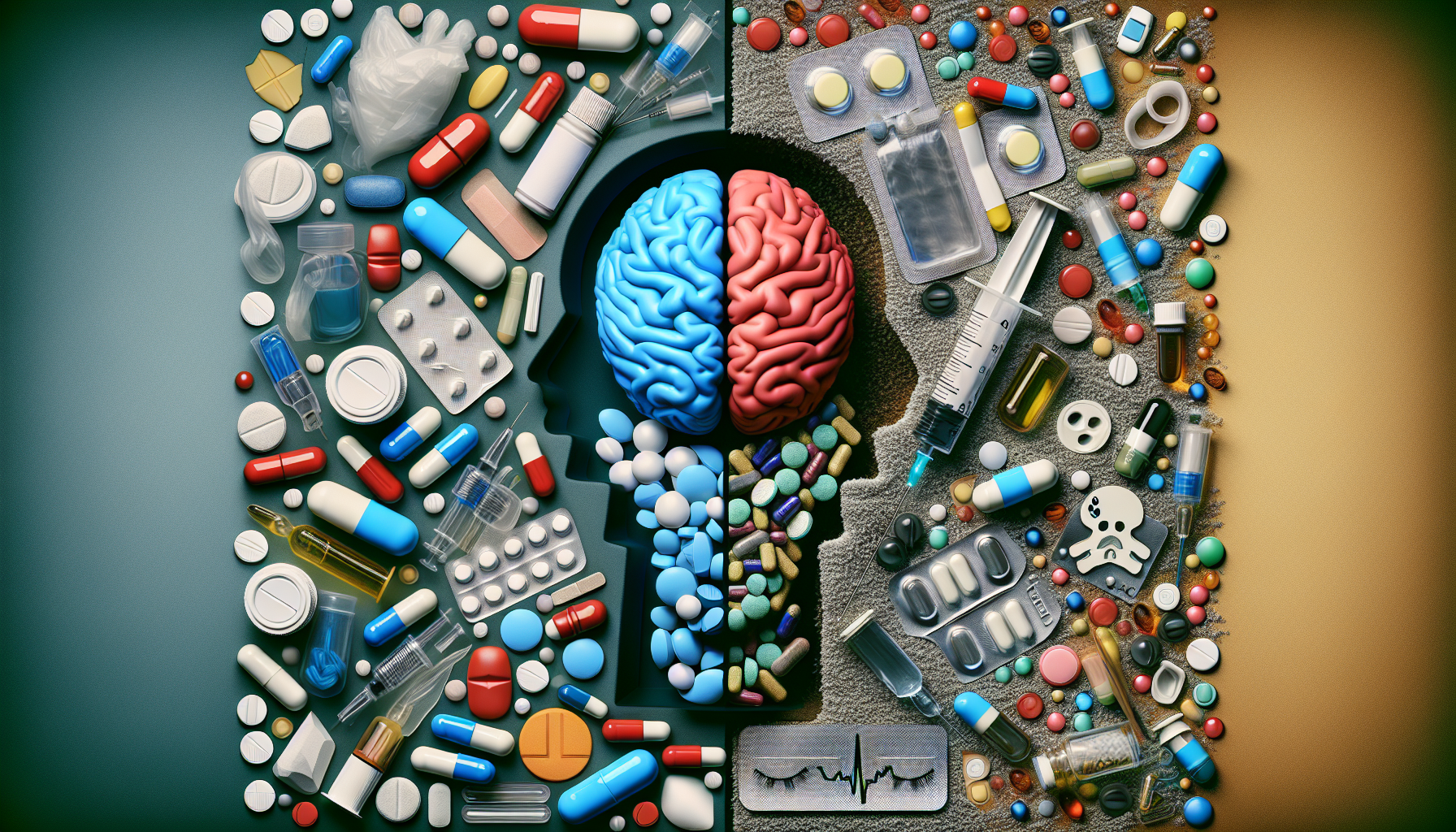
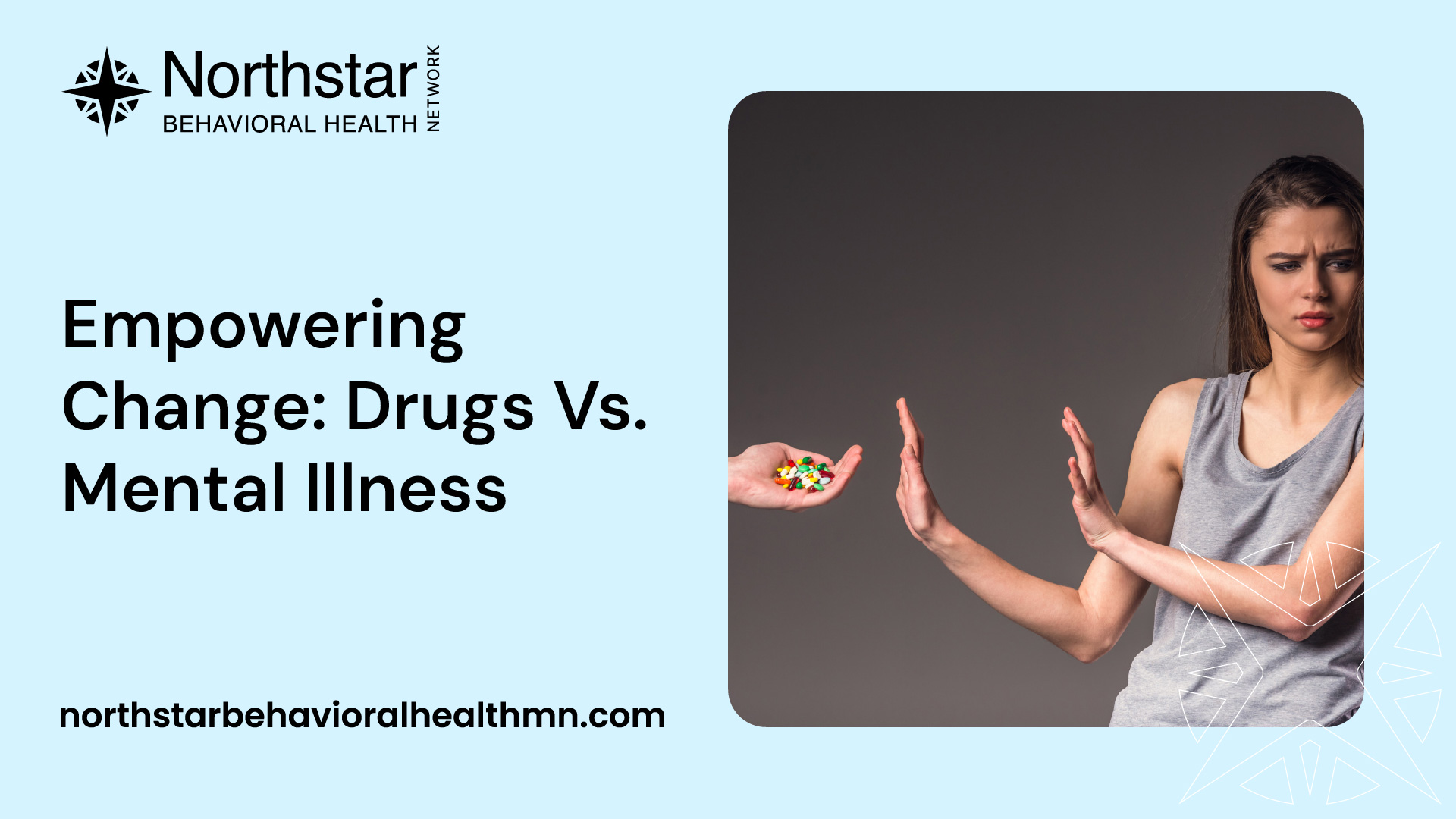
Understanding Addiction
Addiction is a complex condition that can have both physical and psychological components. It is often characterized by the compulsive use of substances despite negative consequences. To fully comprehend addiction, it is essential to understand the connection between drugs and mental illness, as well as how they can interact with each other.
The Connection Between Drugs and Mental Illness
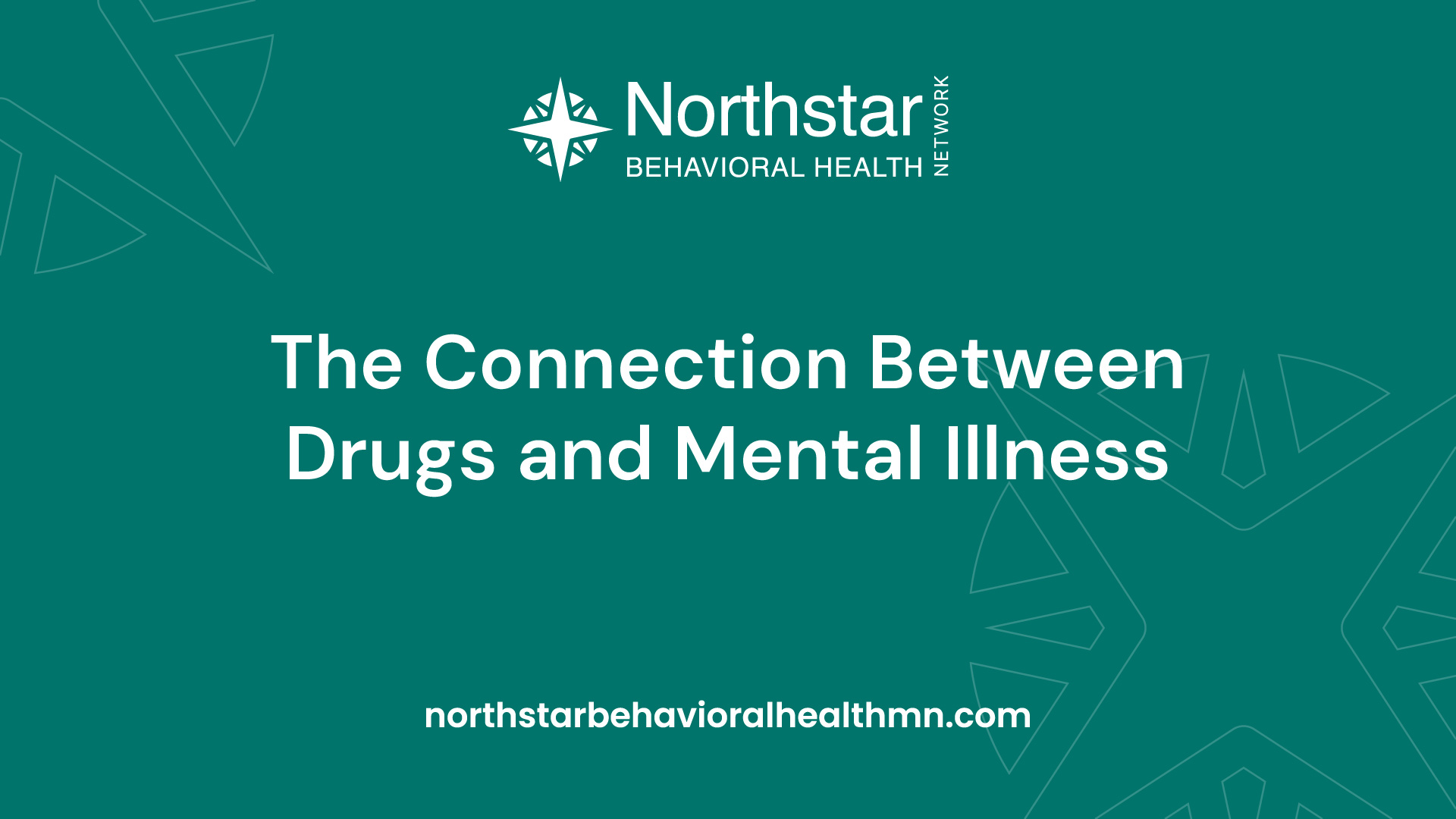
There is a significant link between drugs and mental illness. Research has shown that individuals with mental health disorders are more susceptible to substance abuse, and vice versa. The relationship between the two is often referred to as a "dual diagnosis" or "co-occurring disorders."
It is not uncommon for individuals with mental illness to turn to drugs as a way to self-medicate and alleviate their symptoms. Drugs may provide temporary relief or a sense of escape from the challenges posed by mental health conditions. However, this self-medication can lead to a dangerous cycle of dependency and worsen the symptoms of mental illness over time.
On the other hand, substance abuse can also contribute to the development of mental health disorders. Prolonged drug use can alter the brain chemistry and increase the risk of developing mental health issues such as depression, anxiety, or psychosis. In some cases, drugs can trigger underlying mental health conditions that were previously dormant.
How Drugs and Mental Illness Can Interact
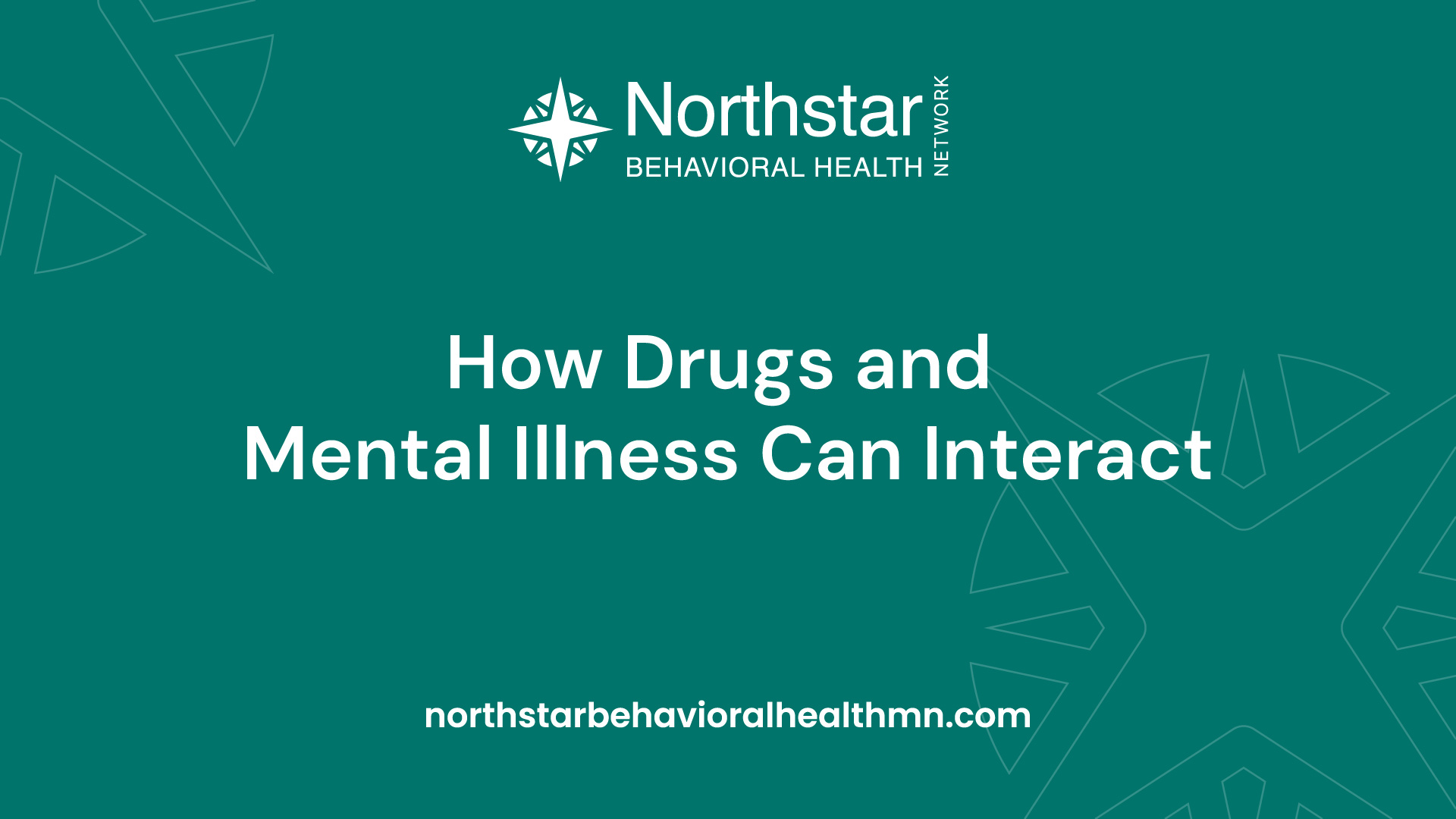
The interaction between drugs and mental illness can vary depending on the individual and the specific substances involved. Here are some ways in which drugs and mental illness can interact:
- Dual Diagnosis: When an individual has both a substance use disorder and a mental health condition, it is referred to as a dual diagnosis. The presence of both conditions can complicate treatment and require specialized care.
- Self-Medication: As mentioned earlier, individuals with mental illness may turn to drugs as a means of self-medication. However, this can exacerbate the symptoms of mental illness and lead to a vicious cycle of dependency.
- Increased Vulnerability: Substance abuse can make individuals more vulnerable to developing mental health disorders. Drugs can alter the brain's chemistry and make it more susceptible to mental illness.
- Worsened Symptoms: Drugs can intensify the symptoms of mental illness or trigger new symptoms. For example, the use of stimulants may exacerbate anxiety or paranoia, while depressants can worsen symptoms of depression.
- Impaired Judgment: Substance abuse can impair judgment and decision-making abilities, making it more challenging for individuals to manage their mental health effectively.
Understanding the connection and interaction between drugs and mental illness is crucial in addressing and treating both conditions effectively. It is essential to seek professional help and support from healthcare providers who specialize in dual diagnosis to develop a comprehensive treatment plan. For more information on seeking help and finding support, refer to our article on where to find help.
Signs and Symptoms
Recognizing the signs and symptoms of both drug use and mental illness is crucial when addressing the challenges individuals may face. By understanding these signs, individuals can seek the appropriate help and support they need. In this section, we will explore how to identify signs of drug use and recognize symptoms of mental illness.
Identifying Signs of Drug Use
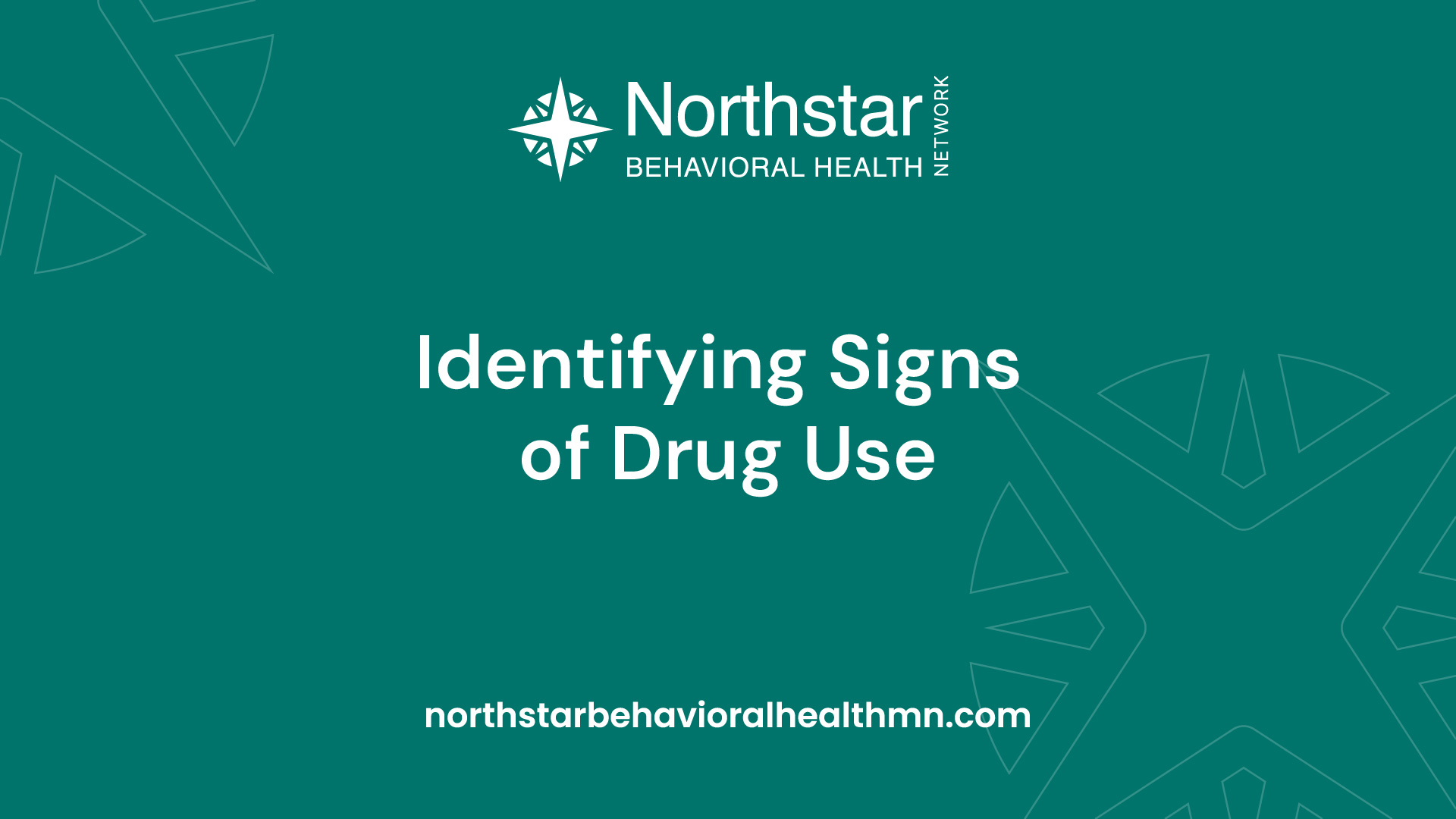
Identifying signs of drug use can be a complex process, as they can vary depending on the substance being used. However, there are some common signs that may indicate drug use:
- Physical Signs: Look out for changes in physical appearance, such as bloodshot eyes, dilated or constricted pupils, sudden weight loss or gain, and changes in sleep patterns.
- Behavioral Changes: Pay attention to sudden changes in behavior, such as increased secrecy, frequent mood swings, withdrawal from social activities, sudden financial problems, or a decline in academic or work performance.
- Neglected Responsibilities: Notice if the individual starts neglecting their responsibilities, such as missing work or school, failing to meet deadlines, or showing a lack of interest in previously enjoyed activities.
- Social Withdrawal: Keep an eye out for isolation or withdrawal from family and friends, as well as a loss of interest in hobbies or extracurricular activities.
- Physical Paraphernalia: Discovering drug paraphernalia, such as needles, pipes, or rolled-up dollar bills, can be a clear indication of drug use.
It's important to approach the topic with sensitivity and empathy. If you suspect someone is struggling with drug use, encourage them to seek professional help. For more information on educating kids about drugs, check out our article on twelve tips for educating kids about drugs.
Recognizing Symptoms of Mental Illness
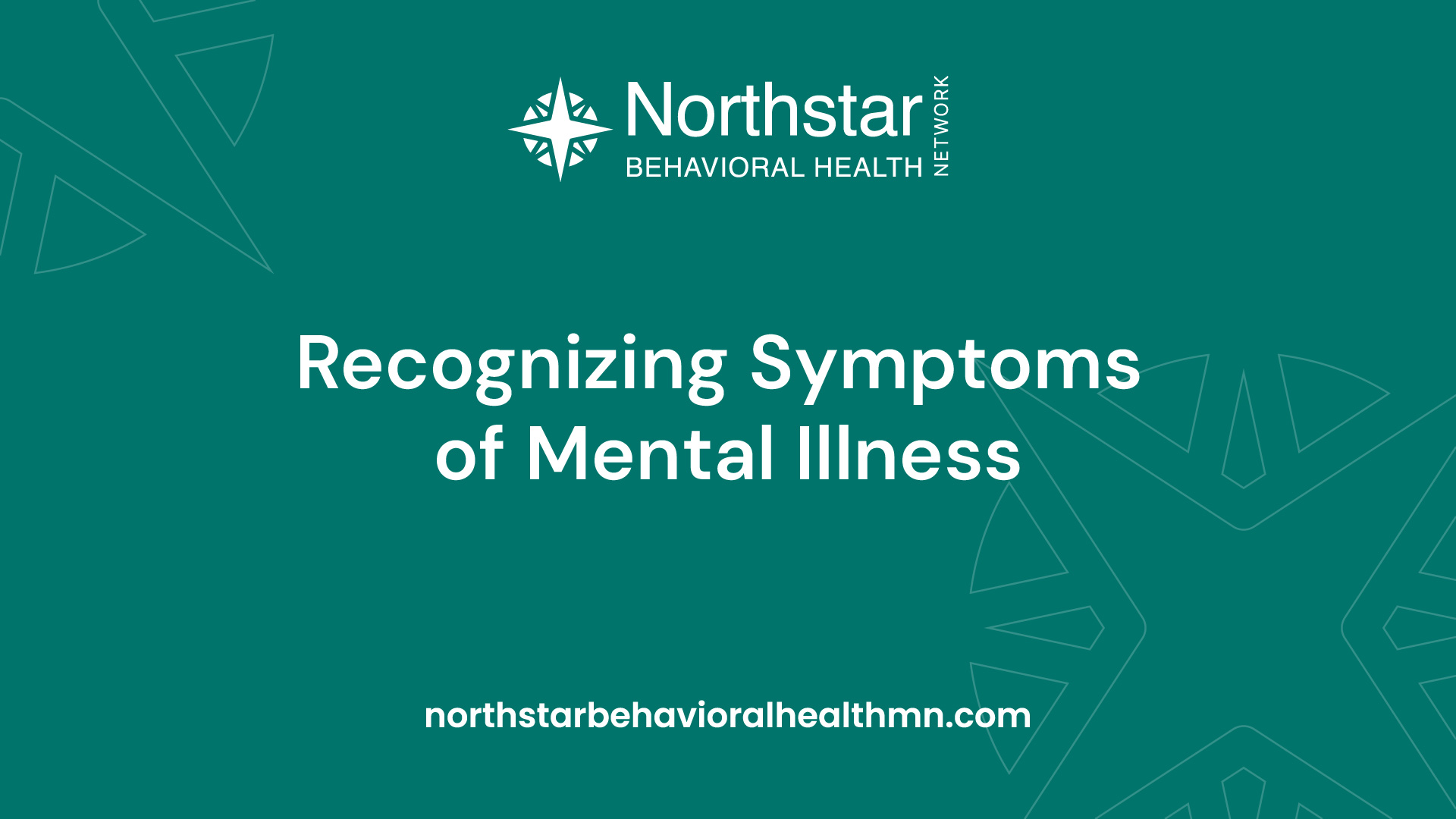
Recognizing symptoms of mental illness can also be challenging, as they can manifest differently in each individual. However, some common signs to watch for include:
- Emotional Changes: Notice if the person experiences frequent mood swings, prolonged feelings of sadness or hopelessness, excessive fear or worry, or a loss of interest in activities they previously enjoyed.
- Changes in Behavior: Pay attention to any drastic changes in behavior, such as social withdrawal, increased irritability, difficulty concentrating, changes in appetite or sleep patterns, or engaging in risky behaviors.
- Impaired Functioning: Recognize if the person's ability to carry out daily activities is significantly affected, such as difficulties at work or school, problems maintaining relationships, or a decline in personal hygiene.
- Physical Symptoms: Some mental illnesses may also present physical symptoms, such as unexplained aches and pains, changes in weight or appetite, or frequent headaches.
- Thought Disturbances: Be aware of any unusual thought patterns or disturbances, such as hearing or seeing things that others do not, having persistent negative thoughts, or experiencing difficulty in organizing thoughts.
If you suspect someone is experiencing symptoms of mental illness, encourage them to seek professional help. There are various resources available to provide support and treatment. For more information on seeking help, refer to our article on where to find help.
By being vigilant and recognizing the signs and symptoms of drug use and mental illness, individuals can take the necessary steps towards seeking help and support. It's important to remember that seeking professional guidance is vital in determining the appropriate course of action for each individual's unique situation.
Seeking Help
When facing the challenges of addiction or mental illness, seeking support is crucial for recovery and overall well-being. Recognizing the importance of seeking help is the first step towards a healthier and happier life.
Importance of Seeking Support
Seeking support is essential because it provides individuals with a network of resources, guidance, and understanding. Whether it's addiction or mental illness, trying to overcome these challenges alone can be overwhelming and isolating. Here are some reasons why seeking support is crucial:
- Professional Guidance: Trained professionals, such as therapists, counselors, and psychiatrists, can provide expert guidance tailored to the individual's needs. They can assist in identifying the root causes of addiction or mental illness and develop personalized treatment plans.
- Validation and Understanding: Connecting with others who have experienced similar struggles can provide validation and a sense of belonging. Support groups and peer networks can offer a safe space to share experiences, gain insights, and learn coping strategies.
- Accountability: Seeking support creates a system of accountability. Having others who are invested in your recovery journey can help you stay motivated and committed to making positive changes. They can provide encouragement, offer perspective, and hold you accountable for your actions.
- Education and Resources: Support networks can provide valuable education and resources to help individuals better understand their condition. This knowledge empowers individuals to make informed decisions about their treatment options and develop effective strategies for managing their challenges.
Treatment Options
When it comes to addressing addiction, there are various treatment options available to individuals seeking help. Each person's journey towards recovery is unique, and finding the right treatment approach is crucial for long-term success. Here, we will explore three common treatment options: therapy and counseling, medication management, and holistic approaches.
Therapy and Counseling
Therapy and counseling play a critical role in addiction treatment. These interventions provide individuals with a safe and supportive space to explore the underlying causes of their addiction, develop coping mechanisms, and learn strategies for maintaining sobriety.
One widely used therapeutic approach is cognitive-behavioral therapy (CBT), which focuses on identifying and modifying negative thoughts and behaviors associated with addiction. Another effective approach is motivational interviewing, which helps individuals find the internal motivation to change their addictive behaviors.
Group therapy is also commonly utilized, allowing individuals to connect with others in similar situations, share experiences, and provide mutual support. Family therapy can be beneficial as well, as it addresses the impact of addiction on the entire family unit and promotes healthier communication and understanding.
Medication Management
In certain cases, medication management may be an essential component of addiction treatment. Medications can help individuals manage withdrawal symptoms, reduce cravings, and stabilize their mental health. It is important to note that medication-assisted treatment (MAT) is typically used in conjunction with therapy and counseling for optimal results.
For example, medications such as methadone, buprenorphine, or naltrexone can be used to treat opioid addiction by minimizing withdrawal symptoms and reducing cravings. Medications like acamprosate and disulfiram can be prescribed to individuals struggling with alcohol addiction, helping to deter relapse and promote abstinence.
It is crucial to consult with a healthcare professional who specializes in addiction medicine to determine the most appropriate medication management plan based on individual needs and circumstances.
Holistic Approaches
Holistic approaches to addiction treatment focus on addressing the individual as a whole, taking into account their physical, emotional, and spiritual well-being. These approaches recognize that addiction affects various aspects of a person's life and aim to promote overall balance and healing.
Holistic treatment modalities may include practices such as yoga, meditation, acupuncture, art therapy, and mindfulness-based techniques. These methods help individuals develop healthy coping mechanisms, reduce stress, and increase self-awareness. Additionally, holistic approaches often emphasize the importance of a healthy lifestyle, including regular exercise, proper nutrition, and sufficient sleep.
By incorporating holistic approaches into addiction treatment, individuals can gain a deeper understanding of themselves and develop a more balanced and fulfilling life in recovery.
While therapy and counseling, medication management, and holistic approaches are common treatment options, it is important to remember that the most effective approach may vary from person to person. It is essential for individuals seeking treatment to work closely with healthcare professionals and addiction specialists to create an individualized treatment plan that addresses their specific needs and promotes lasting recovery.
Remember, you are not alone in your journey towards overcoming addiction, and there is help available. If you or someone you know is struggling with addiction, reach out and consider exploring the many treatment options and resources available.
Recovery Journey
Embarking on the journey to recovery from addiction is a courageous step towards a healthier and happier life. It is essential to understand that the recovery process is unique to each individual, and there is no one-size-fits-all approach. In this section, we will explore the steps towards recovery and the importance of building a support system.
Steps Towards Recovery
Recovery from addiction is a gradual process that requires commitment, perseverance, and support. While the exact steps may vary for each person, the following are common components of the recovery journey:
- Acknowledgment and Acceptance: The first step towards recovery is acknowledging the presence of a problem and accepting that a change is necessary. This self-awareness lays the foundation for the journey ahead.
- Seeking Professional Help: It is crucial to seek professional help when dealing with addiction. Professionals, such as therapists, counselors, and addiction specialists, can provide guidance, support, and evidence-based treatment options tailored to individual needs.
- Creating a Treatment Plan: Working with a healthcare professional, a personalized treatment plan can be developed. This plan may include therapy and counseling, medication management, and holistic approaches. Each component of the treatment plan plays a crucial role in addressing the physical, emotional, and psychological aspects of addiction.
- Detoxification: For individuals with substance dependencies, detoxification may be necessary to safely manage withdrawal symptoms. Medical supervision during this process is crucial to ensure the individual's safety and well-being.
- Building Coping Skills: Learning healthy coping mechanisms is essential for managing cravings and triggers. Through therapy and counseling, individuals can develop effective strategies to deal with stress, emotions, and situations that may lead to relapse.
- Support and Accountability: Engaging in support groups, such as 12-step programs or group therapy, can foster a sense of community and provide ongoing support. These groups offer a safe space to share experiences, learn from others, and receive encouragement from individuals who have faced similar challenges.
Building a Support System
Building a strong support system is a key component of the recovery journey. Having a network of supportive individuals can provide encouragement, understanding, and accountability. Here are some steps to consider when building a support system:
- Family and Friends: Reach out to trusted family members and friends who can offer emotional support and be allies in your recovery. Openly communicate with them about your goals, challenges, and progress.
- Support Groups: Joining support groups, such as Alcoholics Anonymous (AA) or Narcotics Anonymous (NA), can connect you with individuals who have faced similar struggles. These groups provide a safe and non-judgmental environment to share experiences, gain insights, and receive guidance.
- Therapy and Counseling: Working with a therapist or counselor can provide a professional perspective and guidance throughout your recovery journey. They can help you navigate challenges, develop coping skills, and address underlying emotional or mental health issues.
- Sober Living Communities: Consider joining a sober living community or halfway house, especially during the early stages of recovery. These environments provide a structured and supportive living arrangement with individuals who are also committed to sobriety.
- Online Support: Utilize online resources, forums, and virtual support groups to connect with others in recovery. These platforms can offer additional support and accessibility, especially for those who may face geographical or logistical limitations.
Remember, building a support system takes time, and it is essential to surround yourself with individuals who understand and respect your journey. Recovery is not a solitary endeavor, and having a strong support system can greatly contribute to long-term success.
In the next section, we will explore the importance of embracing change and maintaining progress throughout the recovery process.
Moving Forward
Once individuals have taken the courageous step of confronting their addiction or mental illness, it is essential to embrace change and maintain progress throughout their recovery journey.
Embracing Change
Embracing change is an integral part of the recovery process. It involves accepting the need for change and being open to new possibilities. This can include making necessary lifestyle adjustments, avoiding triggers or negative influences, and adopting healthier coping mechanisms. It is important to remember that change takes time and patience. Celebrate even the smallest victories and acknowledge the progress made along the way.
To successfully embrace change, individuals may find it helpful to:
- Set realistic goals: Breaking down larger goals into smaller, achievable steps can make the process more manageable and less overwhelming. This approach allows for a sense of accomplishment, reinforcing motivation and determination.
- Seek support: Surrounding oneself with a strong support system can provide encouragement and guidance during times of change. This support can come from friends, family, support groups, or professional counselors. Connecting with others who have experienced similar challenges can be particularly beneficial, as they can provide empathy and understanding.
- Practice self-care: Taking care of one's physical, emotional, and mental well-being is crucial during the recovery journey. Engaging in activities that promote relaxation, self-reflection, and self-care can contribute to overall well-being and enhance the ability to cope with challenges.
Maintaining Progress
Maintaining progress is an ongoing commitment that requires dedication and resilience. It involves implementing strategies and practices to sustain the positive changes made and prevent relapse. Below are a few tips to help individuals maintain their progress:
- Continue therapy and counseling: Regularly attending therapy sessions or counseling can provide ongoing support, guidance, and a safe space to address any challenges or setbacks. Therapy can help individuals develop healthy coping mechanisms, uncover underlying issues, and maintain motivation.
- Build a strong support network: Surrounding oneself with a supportive and understanding network of individuals who are committed to their recovery journey can be invaluable. These individuals can offer encouragement, accountability, and assistance when facing difficult moments or triggers. For more information on building a support system, refer to our article on building a support system.
- Practice self-awareness: Developing self-awareness is essential for maintaining progress. By understanding personal triggers, vulnerabilities, and patterns of behavior, individuals can proactively identify potential risks and implement strategies to mitigate them. Regular self-reflection and mindfulness exercises can facilitate this process.
- Engage in healthy activities: Participating in activities that promote physical, mental, and emotional well-being can help individuals stay focused on their recovery goals. Regular exercise, hobbies, creative outlets, and mindful practices can serve as positive distractions and contribute to overall wellness.
Remember, progress is not always linear, and setbacks may occur. It is important to approach these moments with resilience and seek support when needed. With determination, the right resources, and a commitment to personal growth, individuals can navigate the challenges of recovery and continue moving forward in their journey towards a healthier and fulfilling life.

.jpg)




.jpg)

